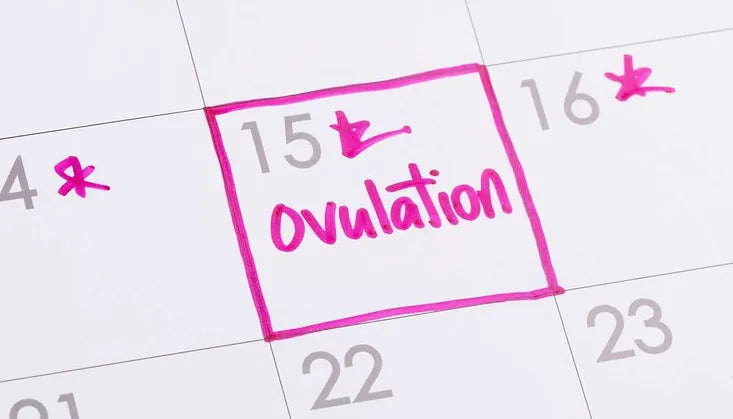When you decide to grow your family, and before you start trying to fall pregnant, there are many important factors to consider. Your personal health, your family and relationship, your work and home environments, your financial position and your emotional state will all be affected by welcoming another tiny person into your life.
Planning and health
When you are planning to start trying for a baby, an important step to assuring you are ready is to assess both you and your partner’s health. As each mum and dad-to-be will have a different experience with conception, it is extremely beneficial to talk to a professional for some advice that is specific to you, and your own bodies regarding anything that might cause complications, or be beneficial during this time. Your GP will be able to answer any questions you have about both becoming pregnant and pregnancy in general, and many more that you wouldn’t even think to ask, as well as providing advice as to how you should proceed in your prenatal health plan.
You can ask yourself if there are any health goals you want to reach personally before you conceive. Do you want to get fit? Lose weight? Gain weight? Quit smoking? Eat healthier? You may have some medical conditions that need to be assessed prior to conception to make conceiving possible. When you are planning to have a baby, making sure you are in the best possible health is the most important thing you can do for your baby.
Planning and your family
Having a baby, or another baby, join your family will have a lasting impact on you, your partner, any children you already have, your individual immediate families and your friends. Basically, having a baby will change every relationship you have, because having a baby will change you.
It is fundamentally important factor in planning to conceive that you think about things like; whether your family is ready to be a little bit bigger, if you and your partner are ready to be parents together, how having another child will impact on any children you already have, and how you will act and react differently in your relationships during and after your pregnancy.
Planning and your work life
Becoming a parent will affect both the way you feel about your job, and the way you perform whilst at your work place.
If you are a possible soon-to-be father, you will want to think about how you will feel about being a possible sole-earner for your family while your partner is either temporarily or indefinitely out of the workforce. Would you consider staying at home to care for your family while your partner returns to the workforce? Does your current position allow you to be present to experience your baby’s growth and development?
For a possible soon-to-be mother, you need to consider whether you will be leaving your job temporarily on a specified amount of parental leave, or do you intend on staying at home to care for your family indefinitely. Can your career withstand you doing so at this point? Are you willing to go back to work and have your partner staying at home with your baby? Is your job flexible enough to allow you to both work and be present to experience your baby’s growth and development? These are just a few things that you might want to consider in relation to your work life and planning to expand your family.
Planning and your home
Bringing a new baby into your home has a major impact on not only how you live, but also where you live. Is your house, unit, or apartment appropriate for a baby to live in? Could you see a child growing up in it? Is there room to play and laugh and grow within the walls you call home? Would you consider moving to a home that will suit your growing family better? If so, is that something you want to do before you get pregnant?
Planning and your finances
It common knowledge that baby’s are expensive. From the time you begin trying to fall pregnant, to the time your child is old enough to start supporting themselves, you are responsible for them financially. Recent studies have shown that on average, having a child will cost parents on average $1 million, with an average cost of upwards of $10,000 in the first year, not including the costs of pregnancy.
Now comes the difficult part; can you afford a baby? Even if you are eligible for paid parental leave, can you afford to have one half of your earnings either diminished or cut completely out of your budget? Can you afford childcare, or to be a one-working-parent family? Remember that the financial effect having a baby, or another baby, will have on your family will be long term. School fees, medical costs, clothing, feeding, housing and raising your children is a lifelong commitment.
Planning and your emotions
Planning for pregnancy in emotional terms is possibly the most difficult to outline, as each person’s emotions vary so differently in every situation.
If you are considering getting pregnant, you, and your partner, may want to ask yourselves a few questions. Am I emotionally ready to be a parent? Am I mature enough to put another person in front of myself for the rest of my life? Do I fully understand the responsibilities of being a parent? Am I willing to parent with my partner for the rest of my life? These are important factors in being aware of how you feel before you make this life-changing decision.
If you have decided to start trying to get pregnant, and expand your family, the best way to keep emotionally open is to talk to people about your feelings and experiences during this process. You might not want to tell your friends or family that you are trying to get pregnant, but you can find support from other people in the same situation as you online, as well as advice and methods to working through any emotional difficulty you might be feeling.
Your emotional landscape will change wildly throughout the conception process. The most common emotions that are experienced during this time are excitement, fear, anger, happiness, sadness, disappointment and anxiety. Once again talking about how you feeling with your partner, your healthcare professional, your friends or family is a fantastic way to help yourself work through any difficult emotions you may be feeling.

